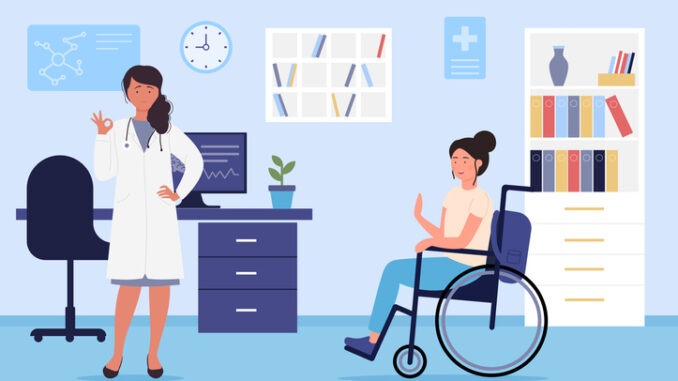
Paul Deemer talks about the language used to describe disability and the impact this has on whether NHS staff choose to record their disability
CREDIT: This is an edited version of an article that originally appeared on NHS Employers
The workforce disability equality standard (WDES) report contains the latest analysis of data collected across the NHS. In many respects, the data is very positive, with many of the indicators showing an improving trend; however, there is an ongoing issue around reporting by those who categorise themselves as disabled on the electronic staff record system.
Figures show that 3.7% of the NHS staff have a disability, but this does not represent the reality. Over 20% of NHS staff state they have a disability in the anonymised NHS Staff Survey – which means that there is a 16% gap in people declaring their disabilities.
There is still an ongoing dialogue about whether we should refer to ‘disabled staff’ or ‘staff with disabilities’. There are certain groups within the disabled community that want to have their own, very unique, identity – including deaf networks, neurodiverse networks, long-term conditions networks and mental health networks – so it is crucial to take the recommendations in the WDES national report on board to make sure these people are empowered to speak up.
Engaging with disabled staff
Two of the key WDES recommendations for trusts is that they monitor and report the relevant data more regularly and that they explore with disabled staff and networks why staff are choosing not to declare that their disabilities. The report recommends this should be done alongside a wider campaign of awareness-raising amongst all staff about what constitutes a disability. It is important to have role models and good practice examples to represent disability in a positive and empowering light.
A call for the use of more accurate descriptions and descriptors
At a national level, the issue of under-reporting and the lack of confidence of people to declare a disability has to be addressed. This can be tackled by ensuring that the language used on monitoring forms and surveys properly, and more fully, represents how people want to define themselves.
The WDES reports are great for shining a light on an issue. However, the language we use needs to change around disability and to be used in a more positive light. We need to ensure our staff are comfortable talking about their disabilities and, most importantly, are included at all levels.


Be the first to comment